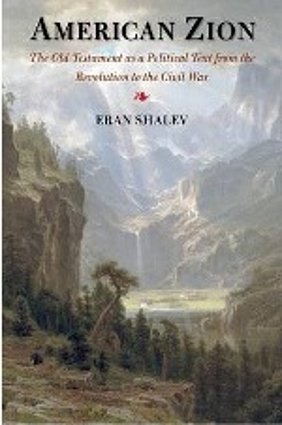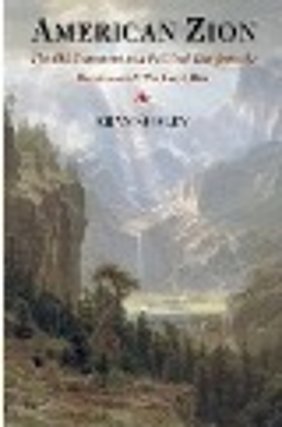Religion was an indisputable cultural force in what became the United States from the colonial period onward. Patricia Bonomi, Jon Butler, Thomas Kidd, and others have written about the role a multidenominational Protestantism, mired in the specter of the Protestant Reformation, played in life in British North America.[1] Saul Cornell, Nathan Hatch, Frank Lambert, Mark Noll, and others have discussed the influence of religion in the American Revolution, the framing of the United States Constitution, and the early republic.[2] Owing to the widespread effect of the Great Awakening(s), the religious culture of the United States, from the colonial period onward, grew from its situation within a Protestant British Empire.[3] More specifically, revivalism placed weight on the New Testament because of its emphasis on the adherent’s personal relationship with Jesus Christ, although revivalist preachers certainly drew from the Old Testament for their sermons. Additionally, as Shalev acknowledges, those who sought religious justifications for slavery also looked to the Old Testament (p. 153).[4] He also notes that the Hebraisms that inspired the political and clerical elite persisted for black Christians even after the Civil War, as they were on the decline with whites.[5] Indeed, his analysis of racial differences in the way Hebraisms were used is one of the strongest points of the book.
Shalev draws on prior scholarship on the role of Jewish sources in shaping European political thought.[6] In a tidy little book in which he pays careful attention to the appearance of theological language in political discourse, he argues for the influence of Old Testament Hebraisms in early American political thought. Biblical Israel, with its affiliation of twelve loosely knit Hebrew tribes, became part of a “sacred geography” in which participants envisioned a possible model for American society (p. 9). That is, these participants presented an America that was, “in significant aspects, Israelite.” What revolutionary Americans did was to look at the Old Testament as a “civic humanist text” to help a “theo-national idea” that was “articulated and dominated by white educated males” (p. 13). Shalev imagines this discourse as part of the development of Christian humanism in the nineteenth century.
Shalev demonstrates how, by the middle of the nineteenth century, when most historians accept a maturation of Christian humanism as having occurred, clergy and politicians routinely made connections between American identity and a biblical past. Among his examples is Enoch Wines, a New Jersey Congregationalist minister. Wines drew comparisons between Moses leading his people out of Egypt and American legislatures leading their constituents away from British tyranny. He also saw a “striking comparison” between the “Hebrew constitution” and the U.S. Constitution (p. 50). At times, Shalev oversells his argument that Hebraisms were not only influential, but a “significant intellectual sphere” for imagining American political identity. He is persuasive in his arguments that Hebraisms were a source of influence, although perhaps not to the degree he intended.
Few if any historians of the religious culture of British North America or the United States would dispute that religious pluralism complicated religious identity, either in the imperial or, later, American national contexts. Additionally, the rejection of monarchy by the Americans meant that the newly independent nation had to look to new models as they tried to define themselves politically. While many framers of the new national identity were optimistic and forward-looking, they could not ignore the past. It will also surprise no one that the envisioning of America as a New Israel particularly appealed to antifederalists who, having just cast off a monarchy, were concerned about the creation of a strong national government. However, even if his argument is not entirely persuasive, Shalev’s is still an important and worthwhile line of inquiry. His innovative analysis that pays close attention to both the theology and the political history makes this book an important new contribution to the scholarly discussion about the role of religion in early American political culture.



